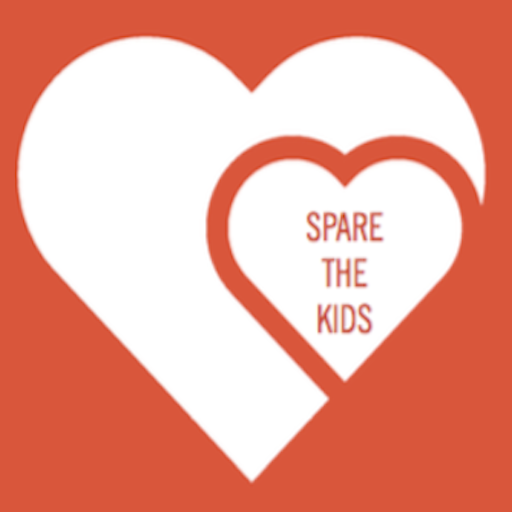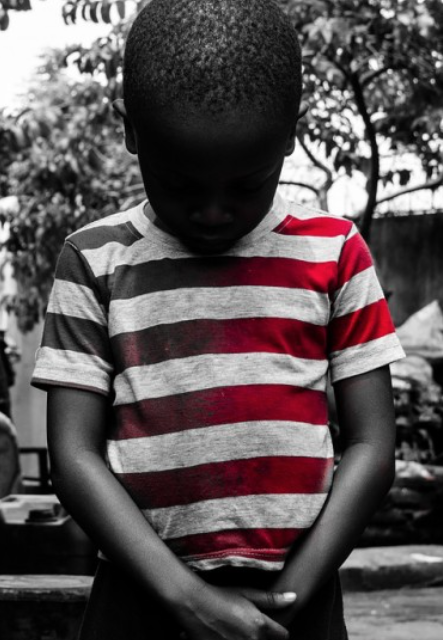By June Allen
When I was a child I was terrified of being a parent. My earliest memory was being beaten by my mother. I don’t remember what provoked her, but I still have flashbacks of her raging hands and feet against my small, brown body.
When I found out I was pregnant, the fear of being just like her intensified. I believed that I was destined to harm my daughter, because of what I had experienced. Thankfully, the love I had for my unborn child drove me to break this abusive pathology.
I am so grateful to have found Dr. Stacey Patton’s work via social media. As a virtual big sister, she had my inner child’s back. I adored her honesty, empathy and fearlessness, which also empowered me as a black parent to speak.
In this piece, I share the 3 reasons we still justify whupping our children. I also reveal the tools that helped me process the layers of trauma, and the hope building my legacy of compassionate parenting.
1. We are emotionally disconnected from our bodies.
When we experience trauma, we disconnect from ourselves in order to tolerate the overwhelming pain. This can be helpful in extreme cases (like a car accident). but when the trauma is inflicted by our parents, it has devastating consequences on our relational well-being.
Disconnecting from painful emotions also robs us of the feelings that bring us joy. Over time, this leaves us feeling hollow, our souls feeling numb and empty. When we are so detached from our own humanity, we can’t empathize with our children’s pain.
During an early therapy session, I couldn’t answer the question, “So what happened to all the feelings around these experiences?” I was too numb to articulate my feelings.
Whilst we may not consciously recall our parents’ cruelty, memories linger in the unconscious mind and body. When we become parents, many cling to whuppings, making our children scapegoats for our unacknowledged trauma and buried rage. If we stopped whupping our children then we’d be left to face our own unresolved pain.
2. We don’t want to admit that our parents were abusive.
Our brains are wired for survival, so the child’s attachment process has powerful, primal ties to ensure success. When parents are violent, the unconscious mind uses denial and fantasy, to maintain the bond and protect us from the truth.
The Bible is also a convenient shaming tool, which feeds this avoidant behavior. Ephesians 6:1-2 says, ‘Children, obey your parents in the Lord for this is right. Honor thy father and mother; which is the first commandment with promise.’ My parents were devout Christians, so with this scripture ringing in my ears, I understood that my pain was invisible and they could absolve themselves of any responsibility for their abusive, neglectful behavior by disguising it as a religious mandate.
When my mother lashed out and my father didn’t protect us, I learned that people who ‘loved’ me were allowed to hurt me. When I saw other black children being pinched, slapped, punched and having their hair pulled, I felt the pain as if it was happening to me. I kept myself small and lost myself time and time again, inside the narcissistic needs of others.
3. Whuppings are white supremacy on autopilot.
During my psychotherapy training, I discovered Mastery, Tyranny, and Desire, the 18th-century plantation diaries of Thomas Thistlewood, a vicious British slave owner who thrived on traumatizing the slaves to assert his power and maintain control.
His methods included raping 158 women 3,852 times; snatching young babies from their mothers to break any attachment and burning them to death over a slow fire. He punished slaves by forcing one to defecate inside the mouth of the accused, who would then be gagged for hours.
This book hit home for me, as Thistlewood’s plantation was in Jamaica where my parents were raised. My ancestors left those plantations with no emotional support, or true understanding of the psychological poison left behind to bleed inside our families in the afterlife of slavery. Seeing the names of his victims humanized the numbers, and allowed me to gain a deeper understanding of our intergenerational trauma.
The goal of white supremacy is to pass its poisonous legacy onto future generations. When we are violent towards our black children, we recycle white supremacist violence against us. When we hurt and silence our children, we feel a temporary sense of power inside a system of insane powerlessness.
With so many layers to heal around this issue, where do we begin? Compassionate parenting begins with being compassionate towards the self.
In 2009, I began working an anonymous 12 step program to begin healing. The meetings provide powerful opportunities for identification; the tools hold me through the excruciating surrender to my truth.
For the first time in my life, I experienced true kindness. I felt heard. I mattered. I was not alone. Over the years, I have built a solid network of black fellows who have now become my trusted family of choice.
I also attended therapy, which became my golden hour to unravel the layers of pain and trauma around my abusive childhood experiences. As a black man, my therapist challenged my fear of racial intimacy, and held the space for me to process the shame and self-loathing keeping me from greatness.
Compassionate parenting is a heart-centered journey of connection, growth and acceptance. As I consciously raise my daughter through each milestone, I am also given the opportunity to re-parent my own wounded inner child. While the inner work is sometimes slow and often painful, I have never hit my daughter and connect with her on a much deeper level.
My journey of recovery has now become a service, where I teach the power of racial intimacy, emotional sobriety and personal empowerment. My hope is that we commit to doing the work required to find inner peace, and return our beautiful, black children to the honored, sacred space in our families where they belong.
June Allen (@yardofgreatness), a guest contributor to Spare the Kids, is a racial wellness educator based in London, UK. Join her for the podcast edition of this post where she shares more details, tools and insights at www.juneallen.net/tbs16.



Recent Comments